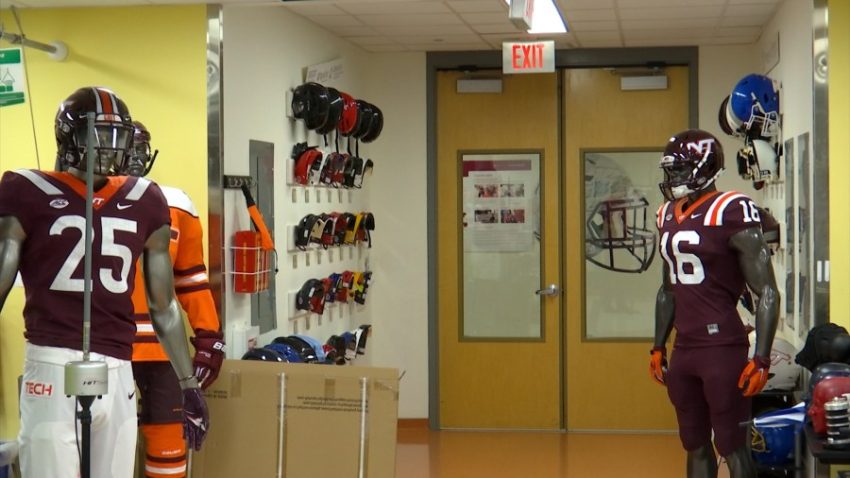Advancements in Helmet Safety Research at Virginia Tech
At Virginia Tech’s helmet lab, researchers are dedicated to ensuring that athletes of the future can enjoy their sports without the risk of serious head injuries. For many students and professionals working in the lab, this mission is deeply personal. Ryan Ordway, a rising junior majoring in mechanical engineering, emphasizes the importance of preventing early-life injuries that could derail an athlete’s career.
“Especially from a young age, these kids can’t go play out their dreams because they have bad injuries from a young age,” Ordway said. “Preventing that is a big deal.”
Since 2011, the lab has been rating helmets on a five-star scale to help consumers identify the safest options. The goal for manufacturers was clear: create helmets that achieve the highest possible rating. However, as more companies succeeded in producing five-star helmets, the system became less effective for consumers.
“We have better helmets today than we did before. However, it’s a little less useful to consumers,” said Steve Rowson, the director of the helmet lab. “If everything is rated as five stars, that’s not really telling consumers which is best. So, we’ve raised the bar for what a five-star helmet is.”
A New Approach to Helmet Ratings
The updated ratings system now applies to both youth and varsity football helmets as well as bicycle helmets. Instead of simply labeling helmets as five stars, the new criteria focus on how well the helmets perform across a variety of tests conducted in the lab. Helmets that score in the top half of these tests receive at least a four-star rating. But only those that achieve the highest scores while minimizing the risk of brain injury earn the coveted five-star designation.
This change means that consumers can now make more informed decisions when selecting protective gear. According to Rowson, the right helmet can significantly reduce the risk of concussions.
“The helmet you choose makes a big difference,” Rowson explained. “If we look at the range performance in the market, you can lower your risk by half, in terms of whether or not you’re likely to sustain a concussion.”
Why the Change Matters
Rowson highlights that any helmet with a four or five-star rating offers substantial protection. However, the updated system ensures that the ratings reflect real-world performance rather than just meeting a baseline standard. This shift helps consumers distinguish between helmets that are merely safe and those that are truly exceptional.
The new ratings are available on the lab’s official website, providing a transparent resource for athletes, parents, and coaches. By setting higher standards, the lab aims to continue driving innovation in helmet design and safety.
As technology and research evolve, so too must the tools that protect athletes. With ongoing efforts to refine testing methods and improve safety standards, Virginia Tech’s helmet lab remains at the forefront of this critical work. Their commitment to reducing head injuries ensures that future generations of athletes can compete with confidence and peace of mind.
